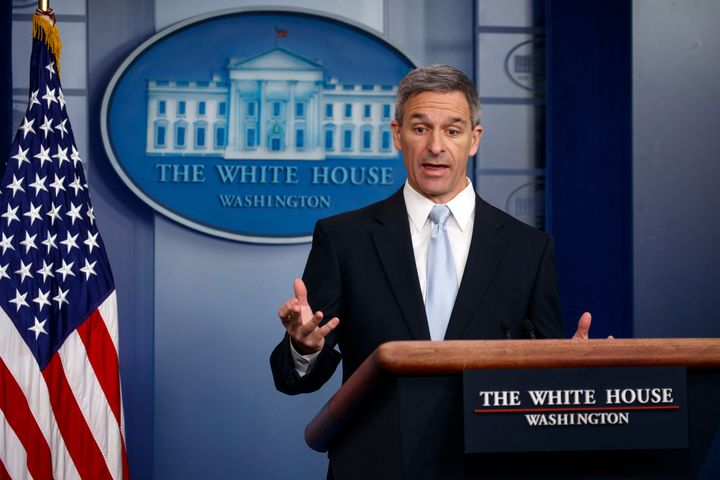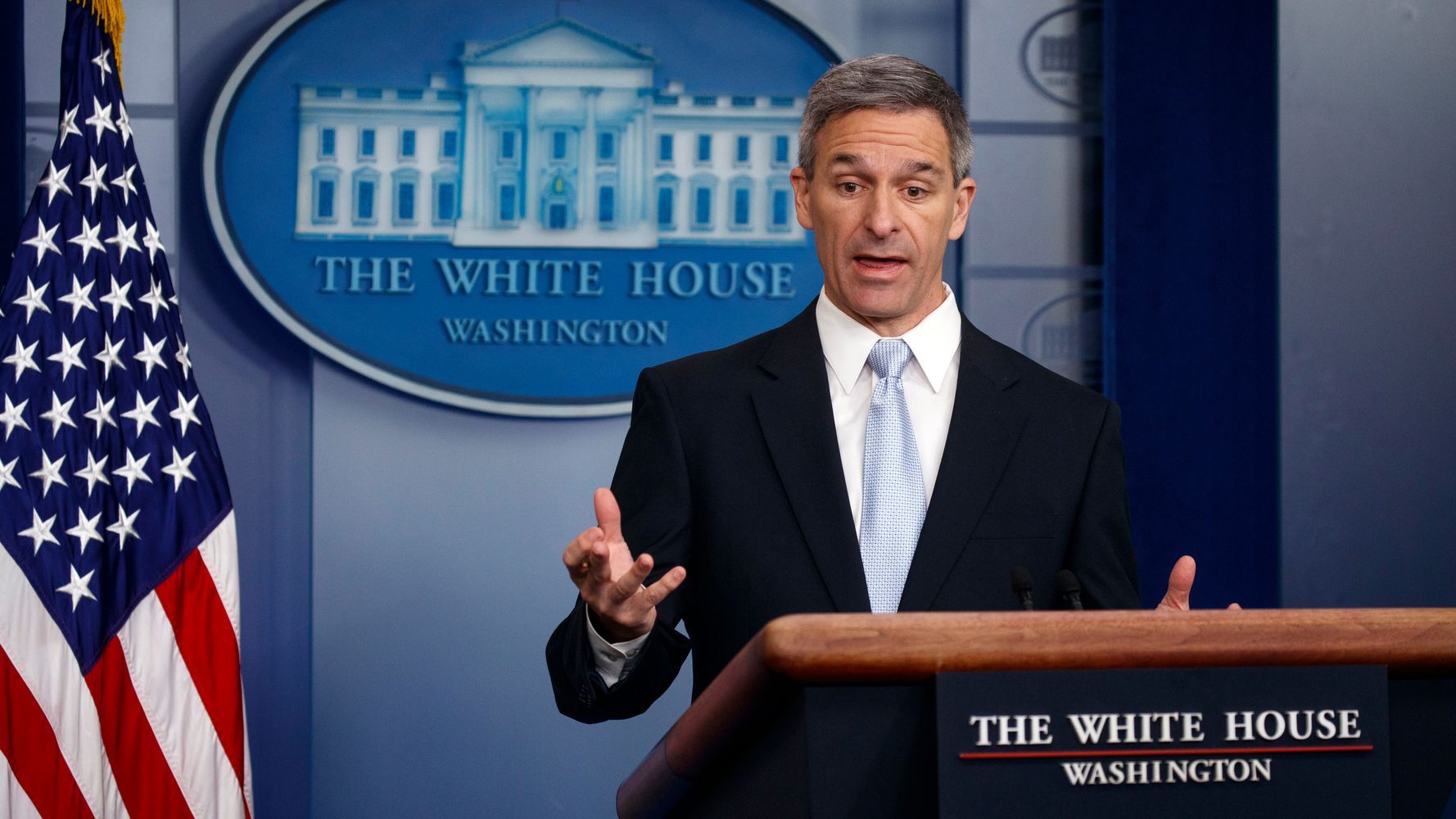[ad_1]
Ken Cuccinelli, the Trump administration’s acting head of U.S. Citizenship and Immigration Services, defended its new rule effectively barring legal immigrants on government benefits such as food stamps and Medicaid from becoming permanent residents by suggesting that the inscription on the Statue of Liberty should read: “Give me your tired and your poor who can stand on their own two feet.”
In an interview Tuesday on NPR’s “Morning Edition,” Cuccinelli repeatedly claimed that “it doesn’t seem like too much to ask.” He argued that “self-sufficiency is central to the American value set, and it’s also central to our immigration history.”
“If they don’t have future prospects of being legal permanent residents without welfare, that will be counted against them,” he said. “It doesn’t seem like too much to ask that we have Americans here who aren’t likely to go on welfare.”
When host Rachel Martin pressed him on exactly which immigrants would be welcome to the U.S., he replied: “All immigrants who can stand on their own two feet, [be] self-sufficient, pull themselves up by their bootstraps — again, as in the American tradition,” going on to cite “his Italian-Irish heritage.”
“Would you also agree that Emma Lazarus’ words etched on the Statue of Liberty, ‘give me your tired, your poor,’ are also part of the American ethos?” Martin asked, after noting that many immigrants throughout history have come to the U.S. “with nothing.”
“They certainly are,” Cuccinelli said. “Give me your tired and your poor who can stand on their own two feet, and who will not become a public charge.”

The new policy, announced Monday and set to go into effect in October, is an effort from the Trump administration to crack down on legal immigration. It will make it more difficult for legal immigrants to apply for visas and permanent residency (also known as green cards) by expanding the definition of who is considered a “public charge,” or someone the government says could become dependent on its programs.
Under the expanded definition, immigrants who are use government services like food stamps, Medicaid or housing vouchers would be considered a public charge — making them ineligible for a green card.
The policy change also adds to the factors the government would consider when evaluating an immigrant’s visa or green card application, including an applicant’s English proficiency, income level and health conditions. This could also further restrict legal immigration.
Immigrant rights advocates have warned that the rule change could have a “chilling effect” and prompt eligible immigrants to avoid or unenroll in government services, even if they are not seeking green cards or visas.
“We invite people to come here and join us as a privilege,” Cuccinelli said later in Tuesday’s interview. “No one has a right to become an American who isn’t born here as an American. America has generously opened its doors.”
When given an opportunity to clarify, Cuccinelli asserted that “it is a privilege to become an American, not a right, for anybody who is not already an American citizen.”
Asked about Cuccinelli’s remarks, Trump said Tuesday: “I don’t think it’s fair to have the American taxpayer paying for people to come into the United States.”
This article has been updated with more details about the Trump administration’s new policy and comments from Trump.
REAL LIFE. REAL NEWS. REAL VOICES.
Help us tell more of the stories that matter from voices that too often remain unheard.
[ad_2]
Source link

